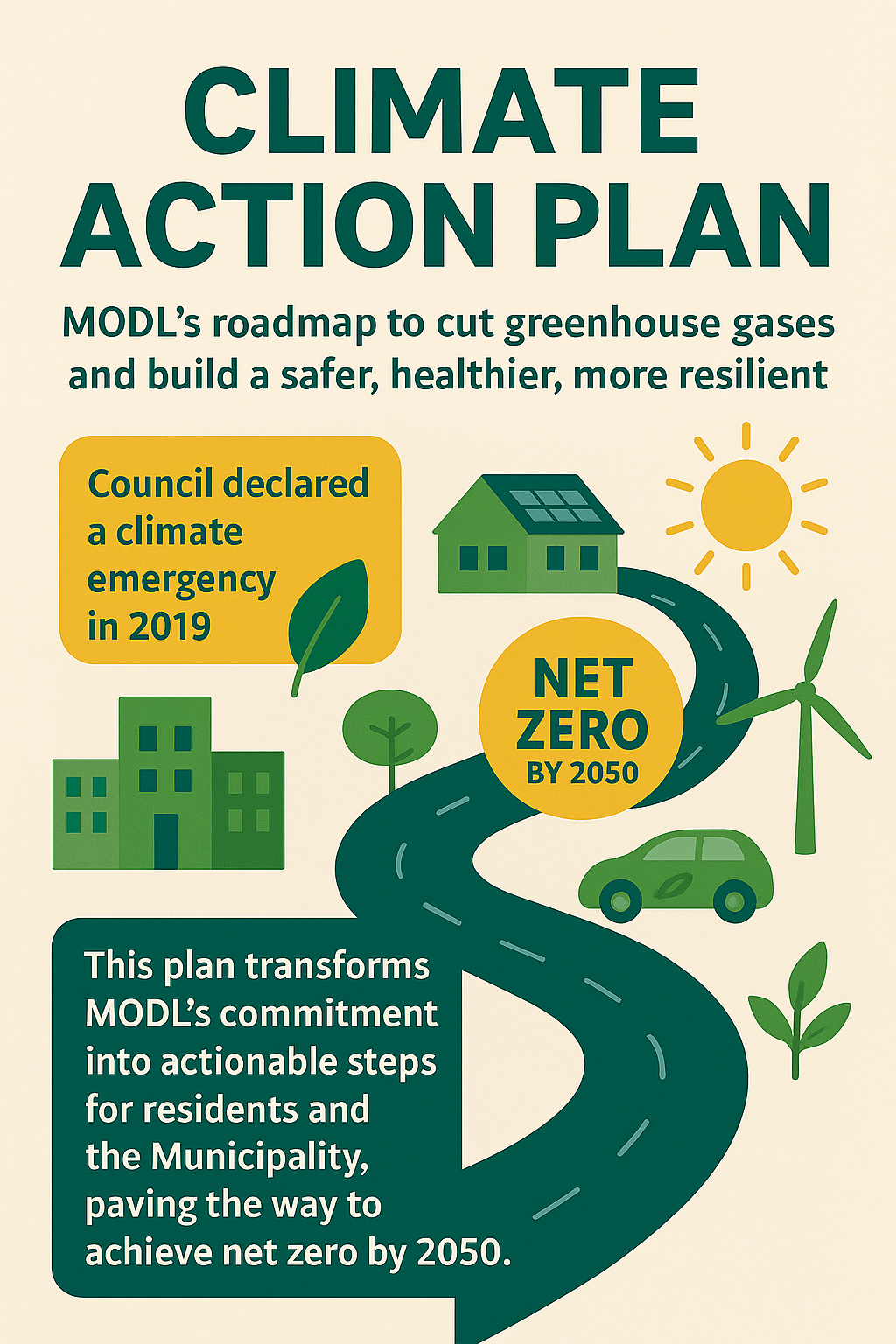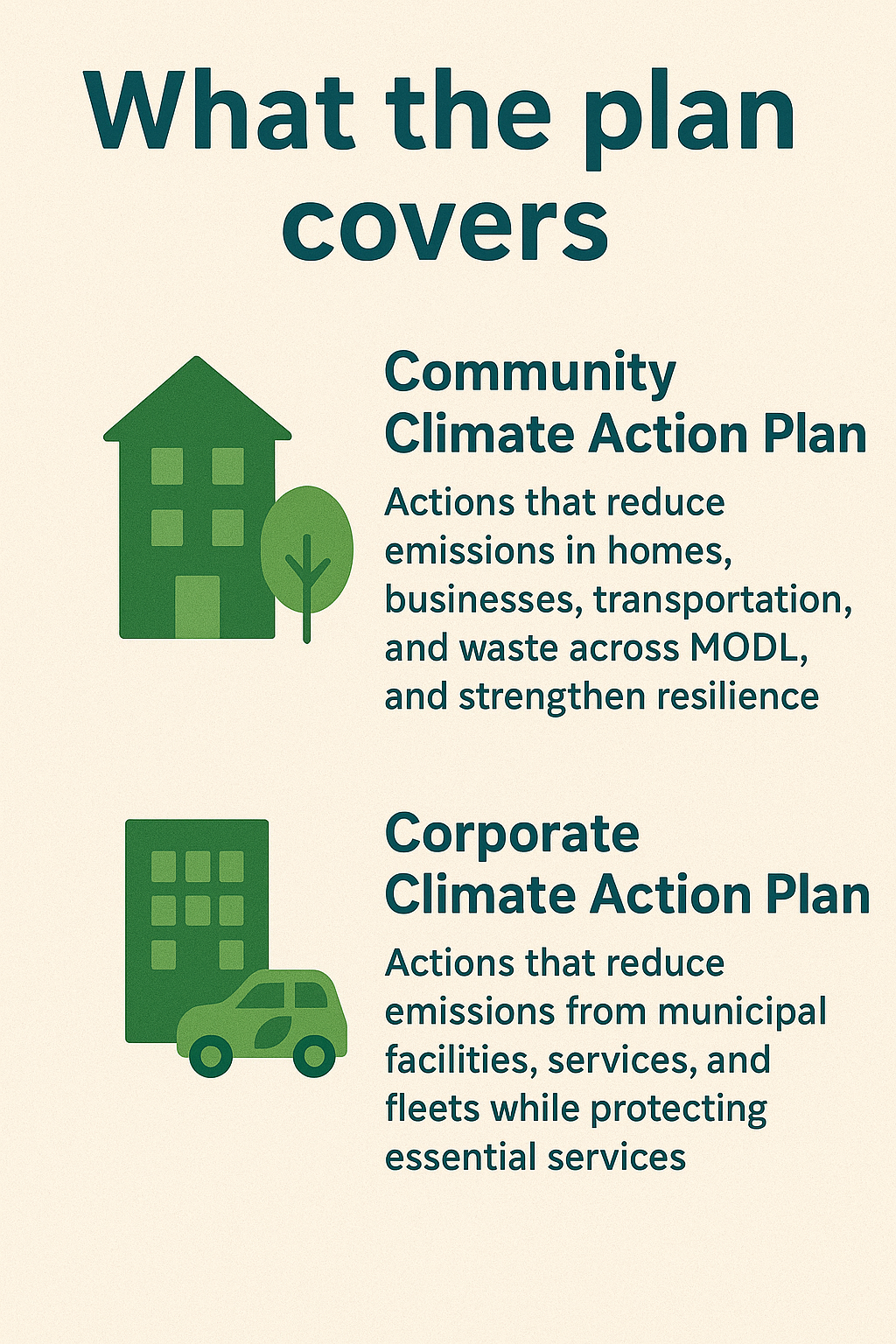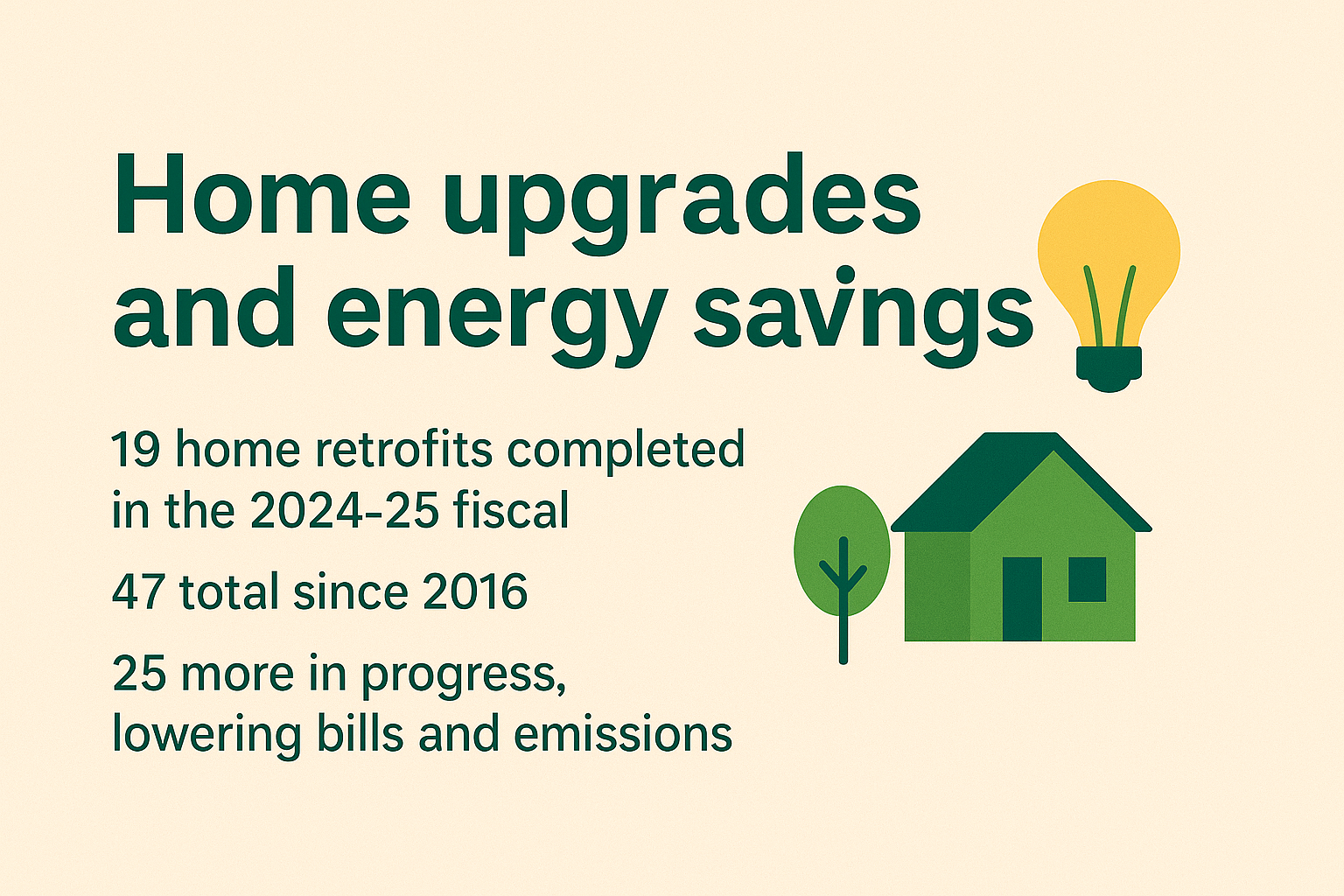Climate Action Plan & Annual Progress
Share Climate Action Plan & Annual Progress on Facebook
Share Climate Action Plan & Annual Progress on Twitter
Share Climate Action Plan & Annual Progress on Linkedin
Email Climate Action Plan & Annual Progress link

The Municipalities Climate Action Plan is a roadmap to cut greenhouse gases and build a safer, healthier, more resilient community. Council declared a climate emergency in 2019. This plan transforms MODL's commitment into actionable steps for residents and the Municipality, paving the way to achieve net zero by 2050.

Community Climate Action Plan
Actions that reduce emissions in homes, businesses, transportation, and waste across MODL, and strengthen resilience.
Corporate Climate Action Plan
Actions that reduce emissions from municipal facilities, services, and fleets while protecting essential services.
 Community emissions 2019: 314,346 tCO₂e
Community emissions 2019: 314,346 tCO₂e2024: 283,113 tCO₂e
9.94% below 2019
Corporate emissions 2019: 1,190 tCO₂e
2024: 921 tCO₂e
22.6% below 2019
Community: 30% by 2030, 65% by 2040, net zero by 2050
Corporate: 64% by 2040, net zero by 2050
Community Action Highlights 2024-2025

Home upgrades and energy savings
19 home retrofits completed in the 2024-25 fiscal, 47 total since 2016, and 25 more in progress, lowering bills and emissions.
Page last updated: 13 Nov 2025, 05:15 PM

